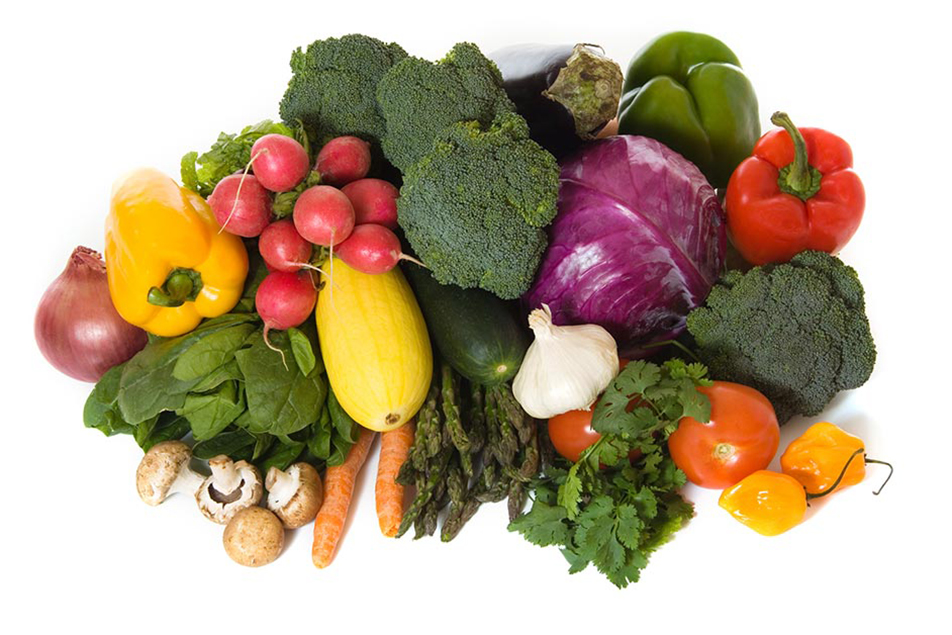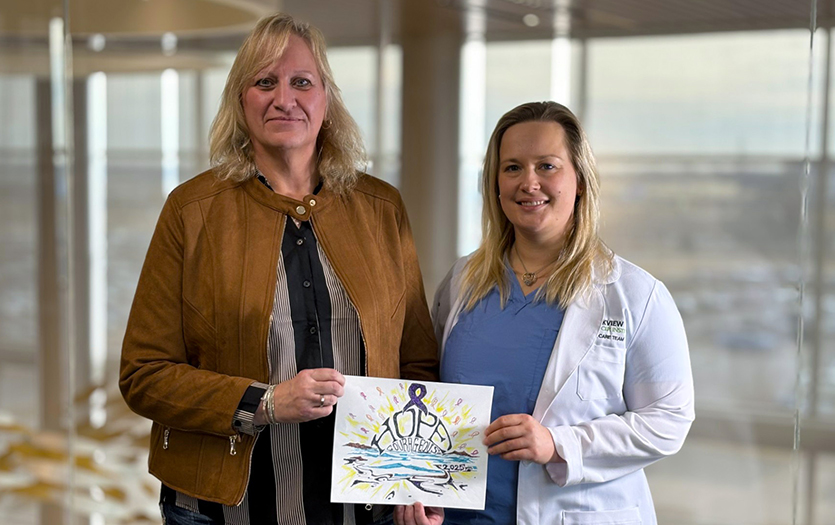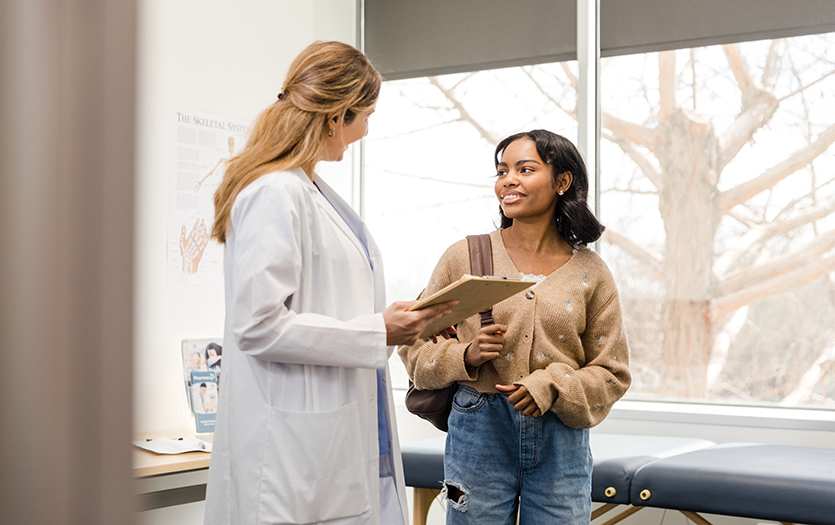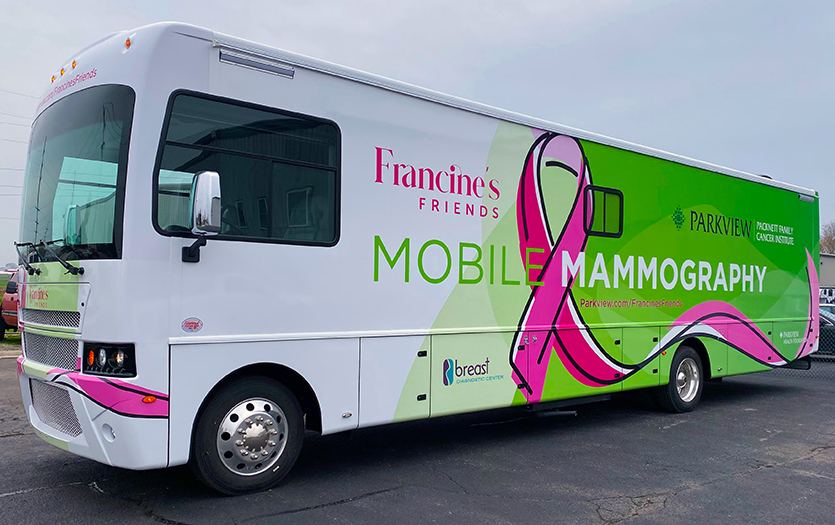We all know that what we eat affects how we feel, and a healthy diet is a key factor in preventing many diseases. Laura Kerwin, MA, RDN, CD, Registered Dietitian Nutritionist, Parkview Regional Medical Center, shares some insight into the role of food in cancer prevention and treatment, and what foods would be a good idea to avoid.
Food for cancer prevention.
While no one food or food component alone can prevent cancer, research suggests that a diet rich in vegetables, fruits, whole grains, beans and legumes can help significantly lower your risk for a variety of cancers. There are multiple food components and chemicals found in certain foods that aid in preventing cancer. Phytochemicals that naturally occur in plants are chemicals that reduce inflammation (which may increase the risk for cancer), enhance the immune system, and have many other protective properties against cancer. Antioxidants block chemicals, known as free radicals, that may damage cells and increase risk for cancer. There are various antioxidants found in certain foods and beverages. Examples of dietary antioxidants include lycopene, beta-carotene, and vitamins A, C, E, which are found in a variety of fruits and vegetables. Catechins, which are antioxidants found in tea, have been shown to potentially decrease risk for cancer. A high fiber diet has also been shown to significantly decrease risk of colorectal cancer, particularly due to fiber’s ability to bind carcinogens in the colon.
In many studies, multiple vitamins, minerals, and phytochemicals have been shown to have anti-cancer effects, but evidence suggests that many of these compounds work together in an overall diet to offer protection against certain cancers.
If combined in a well-balanced diet, the 5 foods listed below are at the top of the list for prevention of various types of cancer:
- Brussel sprouts, broccoli, and other cruciferous vegetables
- Dark green leafy vegetables including spinach
- Blueberries
- Bright orange-colored vegetables and fruits including sweet potatoes, carrots, and bell peppers
- Garlic
Food to avoid.
While eaten in moderation, virtually any food can be relatively safe, but research suggests that some foods may increase the risk for certain cancers. Although they may only cause a slight increase in cancer risk, replacing these foods in your diet with healthier choices may not only decrease your cancer risk, but will also enhance your overall health. For example, foods that are processed contain little to no nutritional value. As a general rule of thumb, it is beneficial for all people (with or without cancer) to focus on consuming healthy foods and avoiding processed foods as much as possible.
Another example is sugar. Our bodies need sugar (glucose) in order to function. Glucose in the body is what gives us the energy to perform daily tasks. Healthy forms of sugar include fruits, some vegetables, whole grain bread products, and low-fat dairy products. When people consume too many food items that are high in sugar (ie. desserts, fast food, sugary drinks) this leads to weight gain. Having excess body fat puts people at higher risk for developing diseases such as cancer, diabetes, heart disease and obesity.
How you prepare your food may also contribute to your risk factor. Many people don’t realize that overcooked meat and meat cooked on a grill may increase your risk of cancer. Meat that is overcooked, especially under high heat and for long periods of time, can cause the release of carcinogens known as heterocyclic amines (HCAs) and polycyclic aromatic hydrocarbons (PAHs). Meats cooked at temperatures above 300°F, and under direct heat such as on the grill, may increase the concentration of these carcinogens. Using cooking methods such as stewing, poaching and broiling can greatly reduce the amount of these carcinogens. If you do overcook meat on the grill or in the skillet, you can always cut off the pieces that are overly charred and discard them. Some tips for grilling to reduce your exposure of these carcinogens include the following: avoiding prolonged grilling times, pre-cooking your meat in a microwave oven prior to grilling at high temperatures to reduce grilling time, refrain from consuming charcoaled meat, and making sure to flip the meat continuously throughout the grilling process.
The top 5 foods that have been shown to potentially increase cancer risk include:
- Well-done red meat
- Processed meats including pre-packaged hot dogs, deli meats, bacon, sausage, and ham
- Alcohol
- Fried foods, potato chips, and other high-fat foods
- Excessive amounts of sugar
Food during a cancer diagnosis.
Just as there are foods that may help prevent cancer, there are foods (or herbal supplements) that may aide in relieving side effects of treatment. Any patient considering an herbal supplement is encouraged to check with their Oncologist prior to beginning treatment, in case the herbal remedy interferes with their treatment medications. Overall, it is important for people to continue consuming a well-balanced healthy diet, if they can, based on their tumor site.
Naming specific foods to consume during a cancer diagnosis is a bit tricky. The location of the cancer may cause difficulty tolerating certain foods, and not everyone experiences the same side effects of chemotherapy. It would be beneficial for patients to meet with a dietitian before, during and even after treatment is completed to help ensure the patient is meeting their needs with a specific diet catered to each individual.




